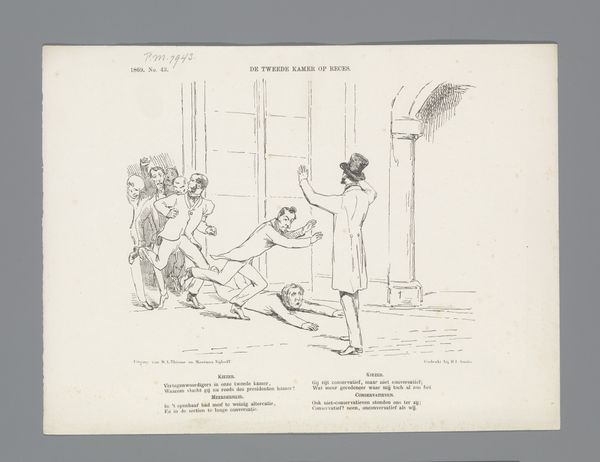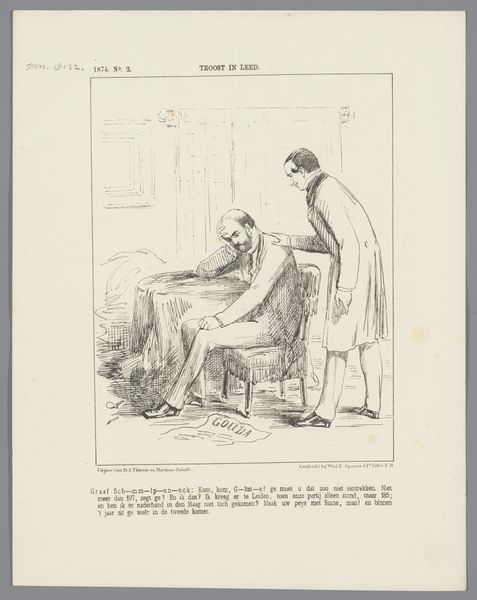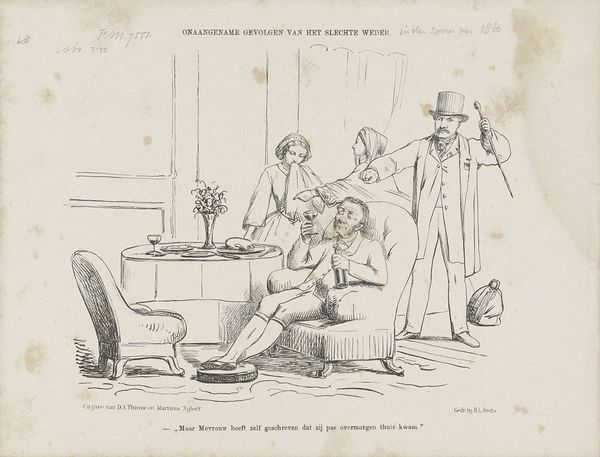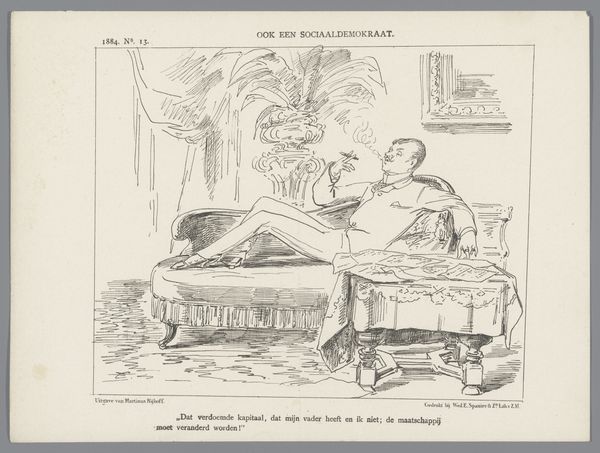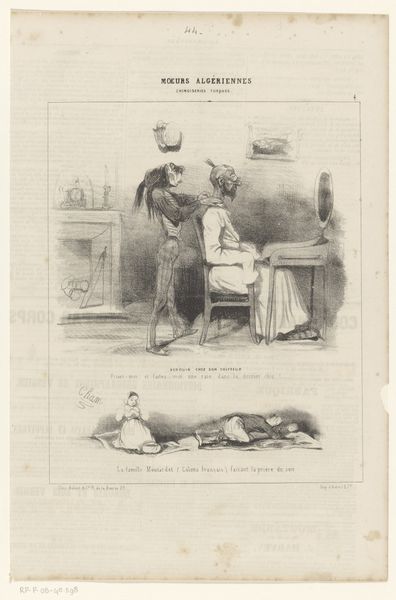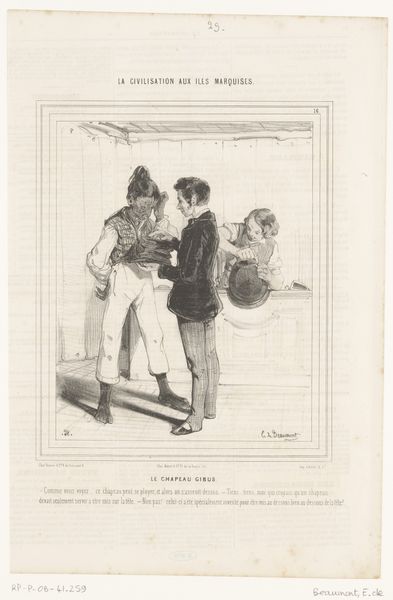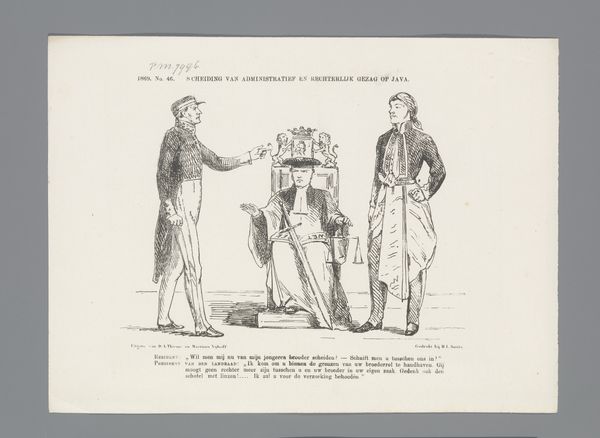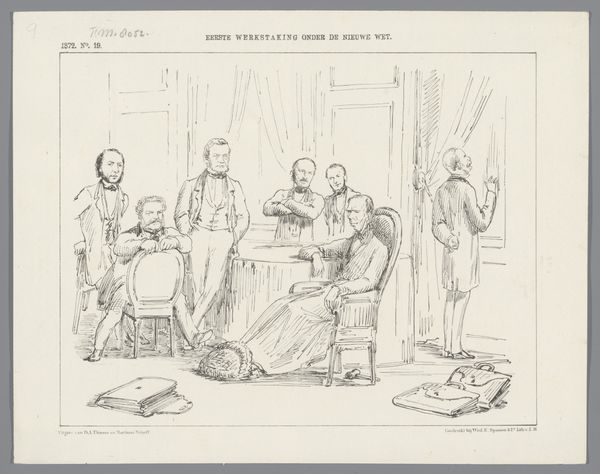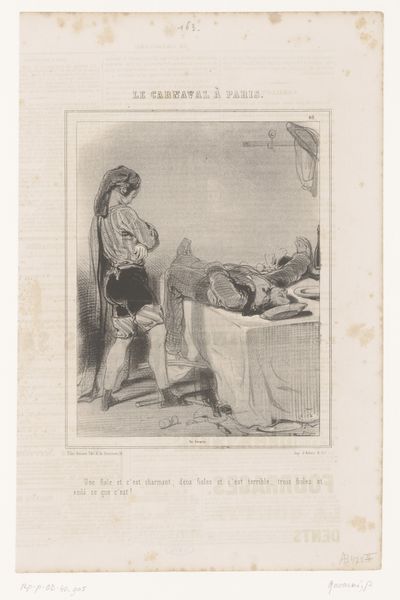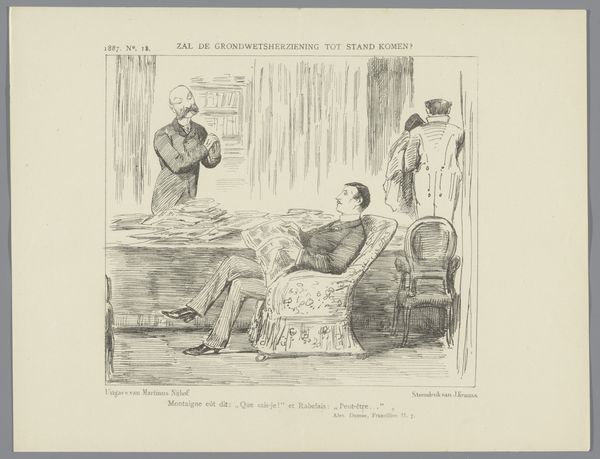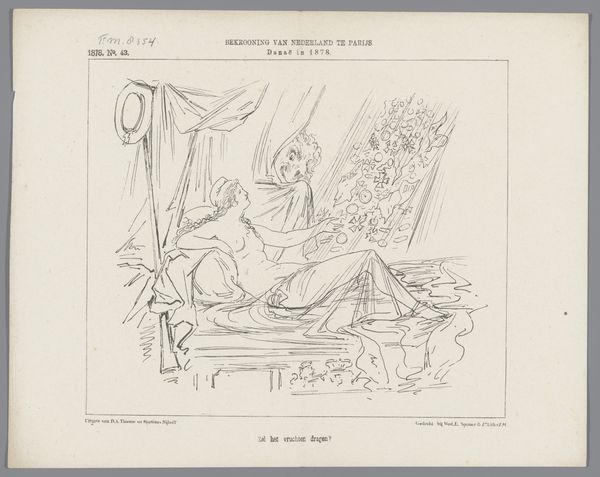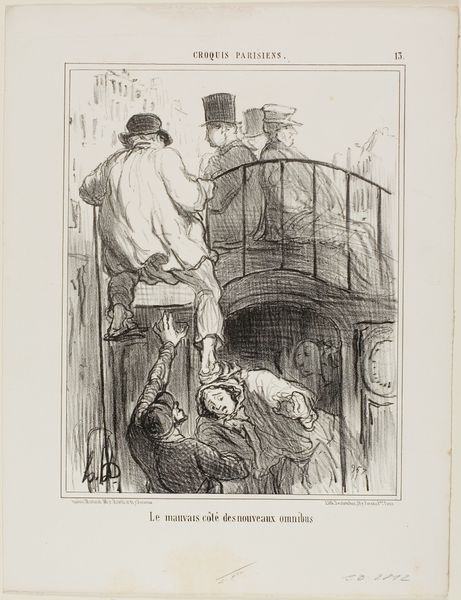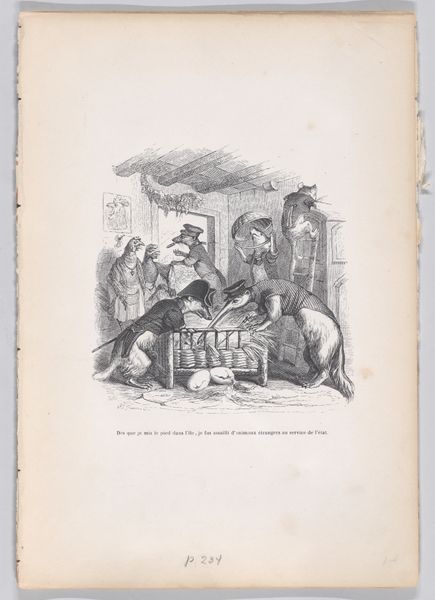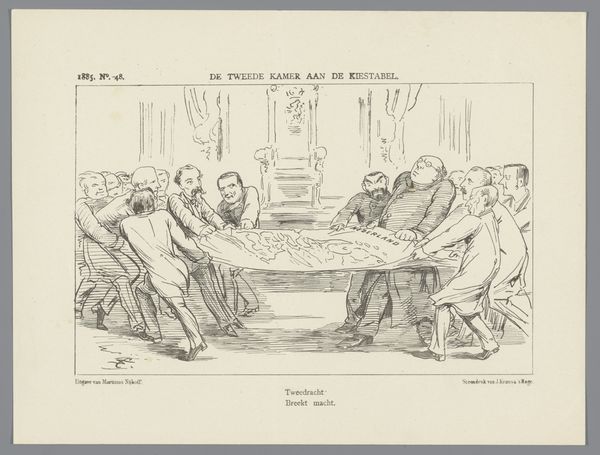
Dimensions: height 215 mm, width 275 mm
Copyright: Rijks Museum: Open Domain
Curator: Here we have a drawing titled "Spotprent op de traagheid in de Tweede Kamer," or "Cartoon on the Slowness in the Second Chamber," created in 1865 by Johan Michaël Schmidt Crans. It's a pen and ink drawing. What springs to mind when you see it? Editor: It feels very melancholic, actually. There's this air of sickroom pallor about it, all very muted and subdued. Someone looks quite unwell, burdened, really. But, I guess, being satirical, the image does not invite deep commiseration. There's an invitation to light scoffing, no? Curator: Indeed. Given the context—a parliamentary critique—the "patient" here likely symbolizes the Dutch Parliament. Look closely at the bed: pillows are literally marked with "2e Kamer," the Dutch lower house of parliament! Editor: Ah, the devil is in the details! Now the sickroom drama has far more zest. So, the artist's suggesting that the parliament is ailing, or perhaps agonizingly slow, as the title implies, during this time period. The figures hovering, the one with the cane, is he impatience personified? Curator: It's plausible. The drawing uses the visual language of illness to critique governmental inaction. The quill and ink medium emphasizes its nature as a readily producible, reproducible piece intended for wider consumption. Its impact lies not in unique craftsmanship, but in distributed political commentary. Editor: It’s clever, how Crans translates abstract political commentary into relatable, intimate imagery of domestic malaise. This contrasts beautifully with the high ideals usually linked to state action. I’m reminded of debates in my own circles, endless policy papers generating, finally... well, a feeling rather like in this image, stagnation! A light chuckle with an underlying tone of despair. Curator: Precisely! It speaks to the universal experience of bureaucratic inertia. Even now, looking at this piece through a 21st-century lens, its core sentiment remains strangely familiar. Editor: A sobering thought. Perhaps, some ailments of power remain evergreen, artistically rendering critique ever so poignant! Thanks to Crans’ hand and wit, such complex ideas transcend epochs!
Comments
No comments
Be the first to comment and join the conversation on the ultimate creative platform.
